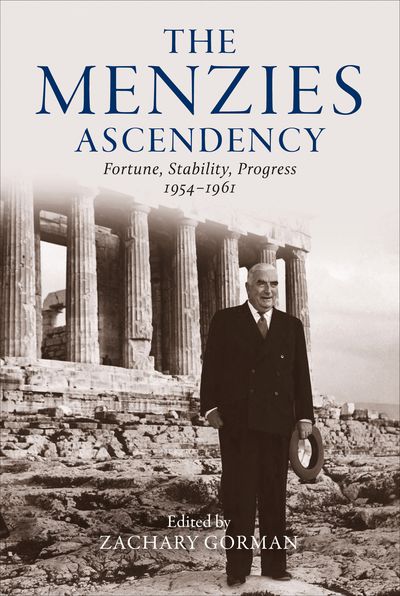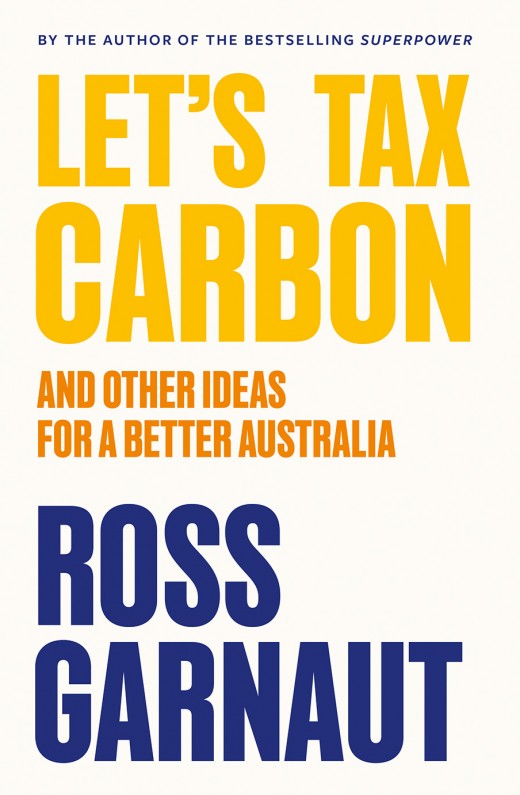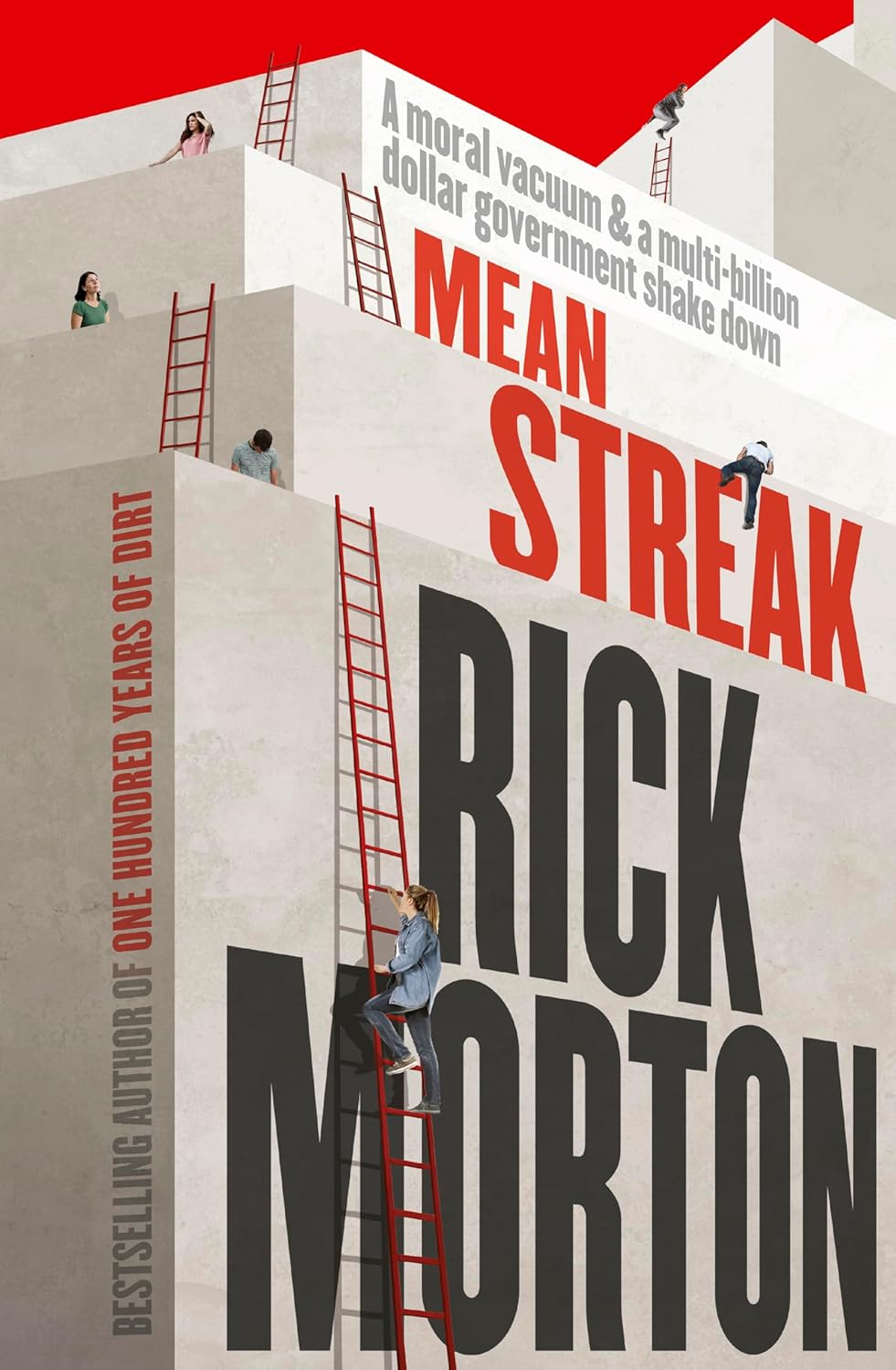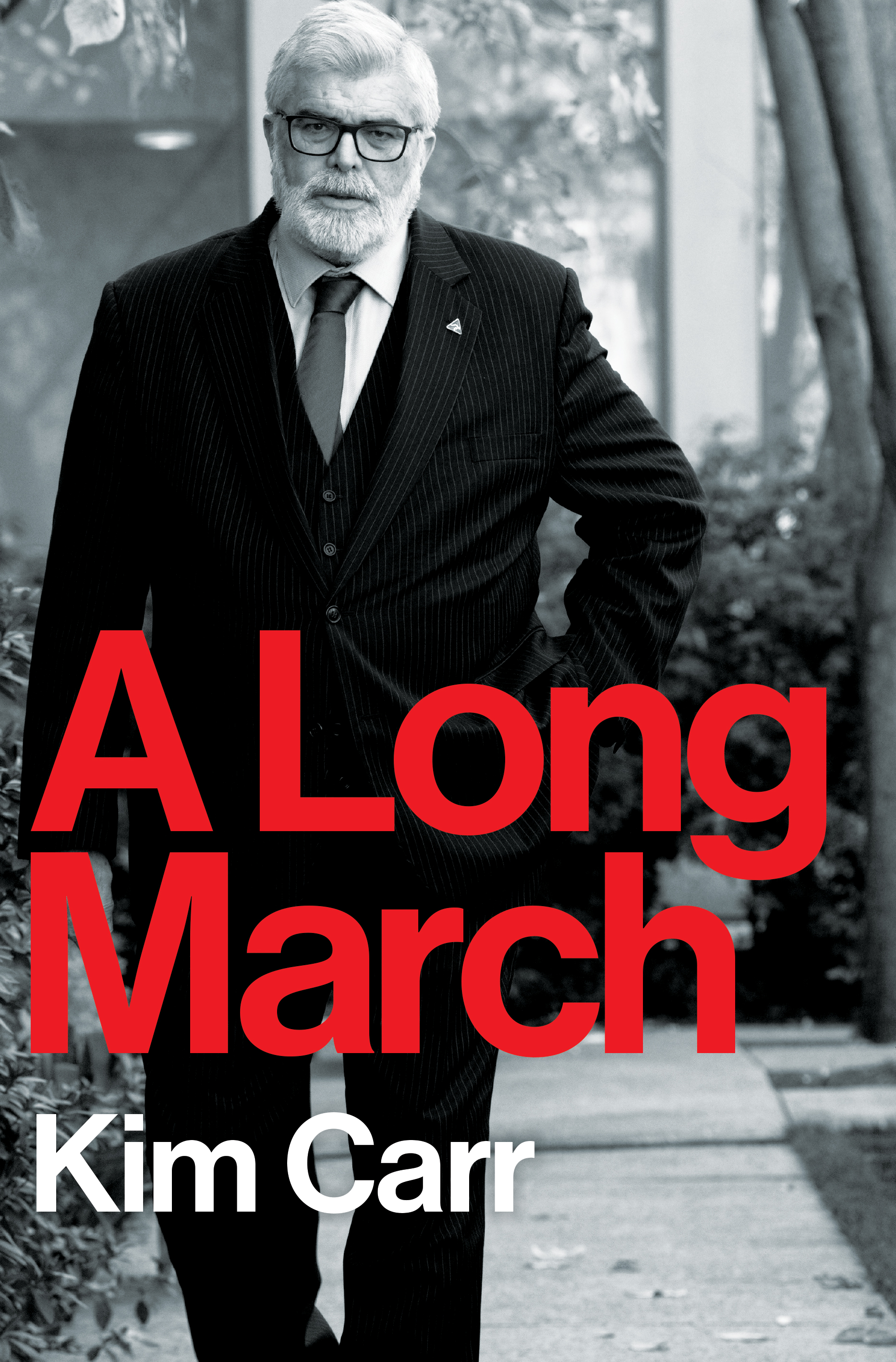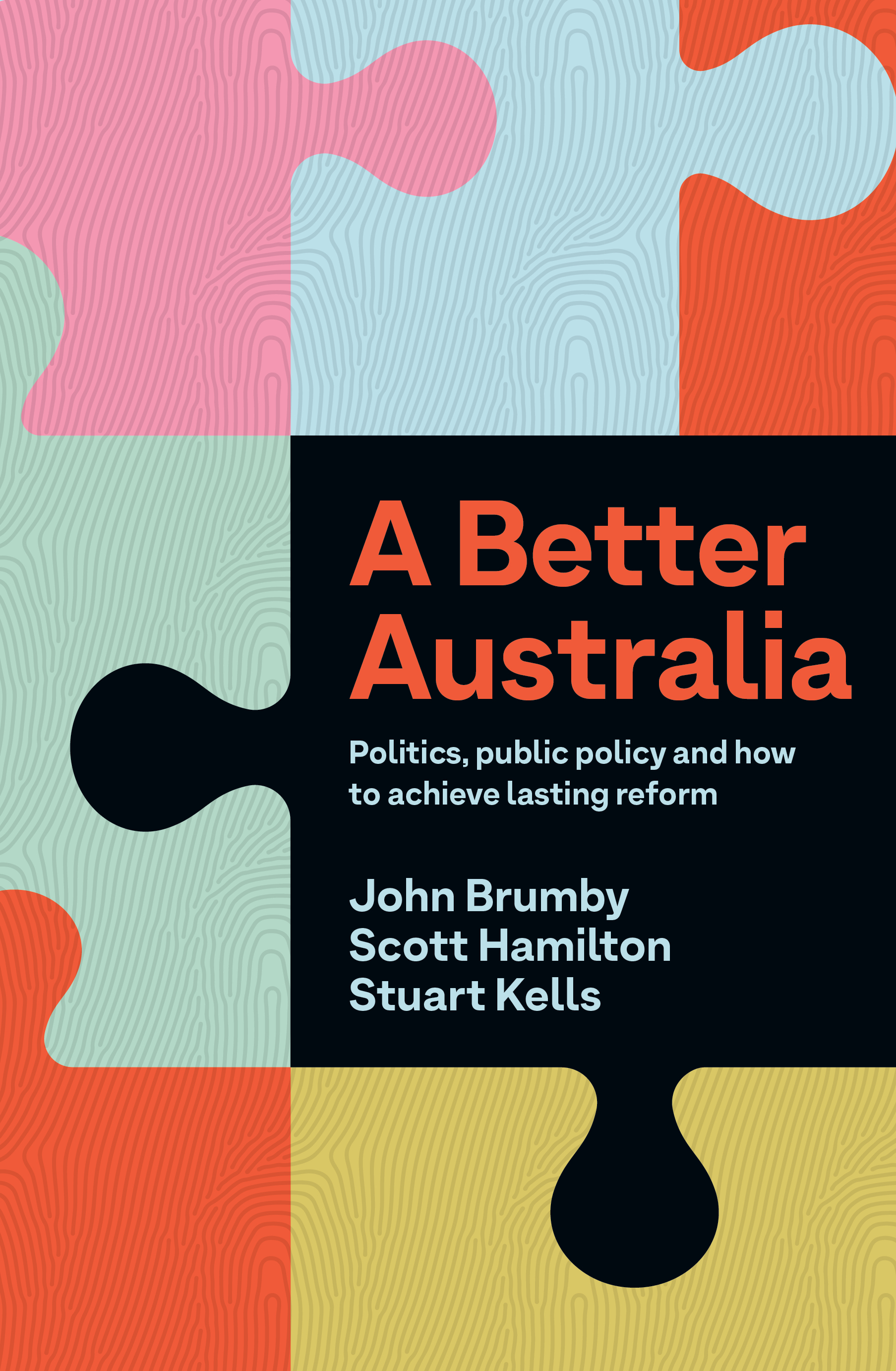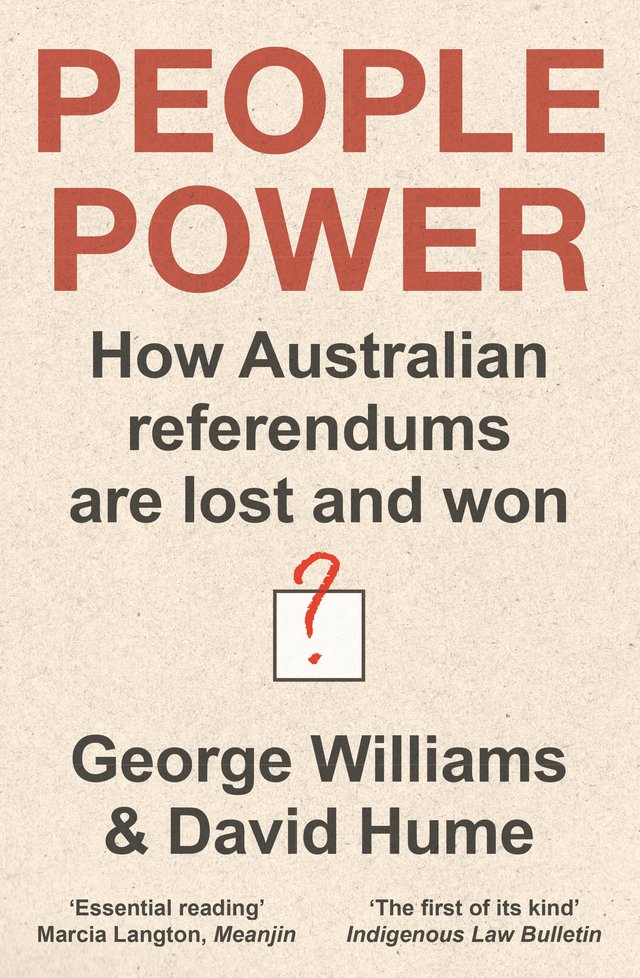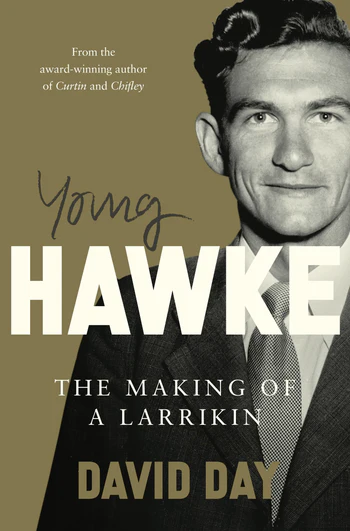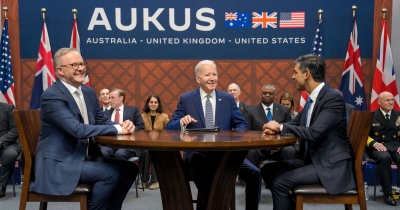Australian Politics
The Menzies Ascendency: Fortune, stability, progress 1954-1961 edited by Zachary Gorman
Australian liberals and the Liberal Party were once thought laggards in attending to their own history in comparison with the Labor Party. Even so, Robert Menzies’ life and career had been well documented, with multiple biographies and memoirs, including Allan Martin’s masterful two-volume biography (1993-99) and Judith Brett’s influential analysis of Menzies’ ‘Forgotten People’ speech as a key to understanding the ‘public life’ (1992). More recently, liberal political history has become a cottage industry.
... (read more)Let’s Tax Carbon: And other ideas for a better Australia by Ross Garnaut
Few books are greater than the sum of their parts – many are less. In the case of Ross Garnaut’s latest effort, the parts are greater than the sum. As a book, Let’s Tax Carbon: And other ideas for a better Australia succeeds and fails. It succeeds as a field guide to the past, present, and future of the Australian economy’s three big policy problems: transitioning to a net-zero carbon economy; reversing social and economic inequity; and creating new industries that secure the nation’s prosperity. But it fails as a work of non-fiction.
... (read more)The colloquial term ‘robodebt’ had emerged online by early 2017. It is now used to refer to several iterations of mostly automated compliance programs targeting former and current social security recipients, overseen by the then federal Department of Human Services, which pursued alleged overpayments of social security moneys.
... (read more)Criticisms first. Kim Carr’s insightful yet evasive memoir, A Long March, reads more like a short march. As a key left factional leader in the Australian Labor Party for the best part of forty years, the former Victorian senator squibs on details. He doesn’t explain the subterranean workings of the ALP; doesn’t fess up on the genesis of his feuds with the likes of Julia Gillard, Kim Beazley, Greg Combet, Anthony Albanese, and John Cain; doesn’t come clean on the part he played in the fall of the Gillard government in 2013; and doesn’t take his share of responsibility for the Rudd-Gillard-Rudd governments’ failure to implement his laudable industry policies. This book should be more revealing, much longer, and much more reflective.
... (read more)A Better Australia: Politics, public policy and how to achieve lasting reform by John Brumby, Scott Hamilton, and Stuart Kells
It is a sign of the times that A Better Australia: Politics, public policy and how to achieve lasting reform begins with a discussion of climate and energy policy. No policy field better illustrates the deficiencies in Australia’s politics over the past generation. It is a tale, as one of the book’s authors, John Brumby, reminds us, of avoidable failure and lost opportunities, as the issue was subjected to the narrower, more immediate incentives offered by partisanship and opportunism.
... (read more)People Power: How Australian referendums are lost and won by George Williams and David Hume
People have peculiar but passionate views about referendums. A large number swear that in 1974 and 1988 the people voted against referendums on the existence of local government. To them, local government is ‘unconstitutional’, so they don’t have to pay their council rates. Members of the same cohort also proclaim that they have a constitutional right to trial by jury for state criminal offences and a right to compensation on just terms if a state compulsorily acquires their land.
... (read more)It is easy to imagine book-buyers nodding with approval at the subtitle of this biography: ‘The making of a larrikin’. With ‘larrikin’ today applied to knockabout young men who are irreverent and mischievous but genuinely good-hearted, Bob Hawke seems a quintessential example. Yes, the myth goes, he used slipshod language now and then, and was quite a sight when he was in his cups, but generally Hawkie was a top bloke, a man who would call a spade a spade, a mate who could sup with princes and paupers but never forget who he was.
... (read more)Bill Hayden, the first Queensland policeman to lead a federal political party, wrote of his experiences as a constable – the violence, the squalor, the tragedy – in his autobiography, Hayden (Angus & Robertson, 1996), and concluded: ‘All of these led me to feel a great anger at the injustices some people had to bear.’ At one point, the former governor-general noted that his ‘humanist’ reaction to injustice reflected his background as the son of a father who was an illegal immigrant and a mother who suffered domestic abuse.
... (read more)When the former Labor prime minister Paul Keating appeared at the National Press Club in March 2023 to savage the bipartisan commitment to acquire nuclear-powered submarines under the AUKUS agreement, he did so only days after Anthony Albanese had stood alongside his British counterpart Rishi Sunak and US President Joe Biden in San Diego to announce the ‘optimal pathway’ for the agreement. Fluttering above them were the respective flags of the three nations. In the background lay berthed the USS Missouri, a Virginia class submarine lined with American sailors and festooned with its own bunting. But as Keating noted in typically pungent fashion, on that day ‘there was only one payer: the Australian prime minister … there’s three leaders standing there … [but] only one is paying … our bloke, Albo. The other two, they’ve got the band playing, happy days are here again.’
... (read more)Bad Cop: Peter Dutton’s strongman politics (Quarterly Essay 93) by Lech Blaine
Bill Hayden might today be recalled as the unluckiest man in politics: Bob Hawke replaced him as Labor leader on the same day that Malcolm Fraser called an election that Hayden, after years of rebuilding the Labor Party after the Whitlam years, was well positioned to win. But to dismiss him thus would be to overlook his very real and laudable efforts to make a difference in politics – as an early advocate for the decriminalisation of homosexuality, and as the social services minister who introduced pensions for single mothers and Australia’s first universal health insurance system, Medibank. Dismissing Hayden would also cause us to miss the counterpoint he provides to Peter Dutton, current leader of the Liberal Party.
... (read more)

